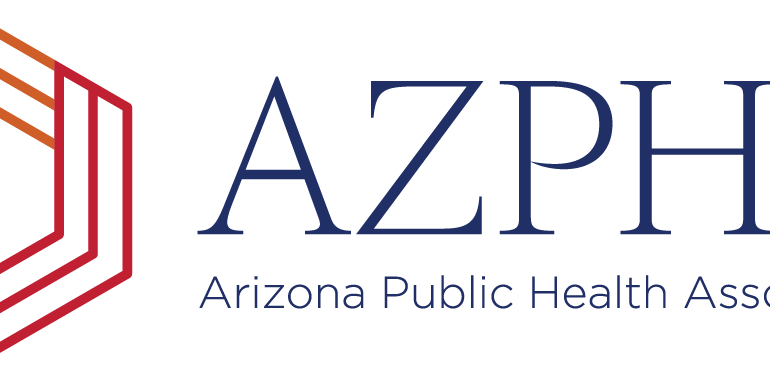Those of you that have attended our AzPHA Fall Conferences know we also have our all members Annual Meeting at the Conference. One of the things we do at the Annual Meeting is summarize our advocacy efforts over the last year- and get some guidance from members regarding where we should focus our public health policy advocacy in the coming year.
One way we do that is to propose Resolutions for our members to ratify. For example, at last year’s meeting we approved Resolutions in support of voluntary certification of Community Health Workers and full dental coverage for Medicaid members during their pregnancy. Those Resolutions helped to drive the direction of our advocacy efforts last year (and in the coming legislative year).
This year we’re exploring resolutions for: 1) passing a state law to restrict the sale of tobacco to people at least 21 years old; 2) additional limitations on distracted driving (e.g. texting & driving); and 3) a statewide requirement regarding recess and time for physical activity in elementary schools.
I’ll devote the rest of this update to the evidence for moving to a “21” standard for buying tobacco products. I’ll cover the others in later policy updates.
In a nutshell, the rationale for moving the purchase of tobacco to 21 from the current 18 has its roots in human biology. People that start smoking before 21 are much more likely to be a lifetime smoker because their (still developing) brain gets hard-wired to the craving for nicotine. The intervention is basically designed to push back the start date for smoking so we create fewer lifetime smokers.
There’s a host of evidence to support this policy initiative in a new report from the Institute of Medicine (it’s available for free on the Institute of Medicine’s website). The report thoroughly evaluates the evidence base and concludes that… “Increasing the minimum age of legal access to tobacco products will prevent or delay initiation of tobacco use by adolescents and young adults, particularly those ages 15 to 17, and improve the health of Americans across the lifespan”. The report also quantifies the immediate and long term accompanying public health outcome improvements.
What about the FDA, can’t they do this at the national level? Basically no, not under existing federal law and regulations.
While Family Smoking Prevention and Tobacco Control Act of 2009 granted the FDA broad authority over tobacco products (including issuing regulations to restrict tobacco retail sales to kids and to restrict tobacco product advertising and marketing to youth) the Act prohibits the FDA from establishing a minimum tobacco sale age to people over 18. States, however, have the authority to raise the minimum purchase age on their own.
Several jurisdictions have done it already. New York City raised the age to 21, in 2013. Hawaii did it in 2015, becoming the first state to go to the 21 (the Hawaii Public Health Association was instrumental in that effort). California followed suit in 2016, and New Jersey’s Governor signed a bill last week that will move the tobacco purchase age to 21. A bill that raises the minimum age to 21 in Oregon is awaiting the signature of their governor.
In Arizona, Douglas and Cottonwood have passed local ordinances restricting the sale of tobacco to people 21 and older.
We hope to see you all at the Fall Conference and Annual Meeting on September 28 entitled: Arizona’s Opioid Epidemic: Evidence – Interventions – Policy. We’ll be proposing the smoking age resolution at the Annual Meeting of our members.
We expect to have our registration website up and running on www.azpha.org later this week.
__________
Healthcare Debate Factoids
We’re continuing to hear that the US Senate will vote on a Motion to Proceed on a bill that would eventually “repeal and replace” the Affordable Care Act as early as Tuesday afternoon. Lots of confusion remains on which bill they’ll be voting to proceed on.
While there are differences in the various Bills that have been floated in the Senate, every one so far would make big reductions to Medicaid funding, deprive millions of people of health insurance, and remove consumer protections while providing tax breaks to corporations and high-income households.
Thus far, all the Democrats in the Senate have been holding firm with their opposition to these bills as well as a handful of Republicans. The President, Senate leadership and groups that want to repeal the ACA are putting pressure on Senators Capito (R-WV), Heller (R-NV), Murkowski (R-AK) and other targets to vote yes on the Motion to Proceed vote. This week will be very important for access to care!
In an informal ruling last week, the Senate parliamentarian (an appointed person named Elizabeth MacDonough) ruled that certain provisions in one of the Senate Bill drafts doesn’t comply with the reconciliation rules- (meaning that those provisions would need 60 votes rather than 51)…. including defunding Planned Parenthood and restricting the use of tax credits for plans that cover abortion. More Senate Parliamentarian rulings are to follow, including the ‘Consumer Freedom’ amendment authored by Sen. Cruz (R-TX).


